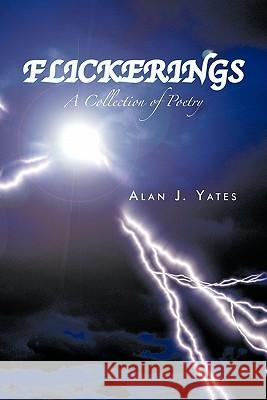Flickerings: A Collection of Poetry » książka
Flickerings: A Collection of Poetry
ISBN-13: 9781426960703 / Angielski / Miękka / 2011 / 160 str.
Flickerings is not just an unusual and multi-faceted collection of the author's poetry. While he uses the poetry form to tackle often disturbing themes, such as the search for the meaning of life, death among family and friends and even large social issues such as consumerism and the environment, he does so with delicacy, wry humour and, through, a love of the musicality of the 'language' of poetry. Nor is this anthology of his works by theme a mere collection of different thematic topics, poetic forms and structures, but it offers a discussion of the medium of poetry itself. Yates has an extensive background in the communications field and has written for print and broadcasting, as well as teaching Communications and writing. In an introduction to the collection, he attempts to define the medium of poetry, both as an art form and as a medium of communication. As he puts it, not every writer can write deathless and beautiful prose....."so, sometimes, especially in moments of personal indulgence, some of us write poetry instead. For, in poetry, there are no holds barred. Mystery is the staple of the medium and music is the staff on which it is most often written......there is hardly any point in resorting to the poetic form if the result just looks and sounds like a shipwrecked fragment from a novel. What the poem can-and too rarely does- is to convey a subject or experience more lyrically, perhaps less explicitly and, ideally, in a nutshell. The poem should also have the potential to produce resonances or recognitions in the reader about similar ideas or experiences....and, failing such recognition, the reader can at least enjoy the mystery and the music..." And he concludes, ..".prose is most often concerned with the denotative and explicit, while poetry relies more on the connotative and implicit...delving into the inner dimension....the more private and mysterious one of the senses themselves-of the 'mindscape, ' if you wish." This, the author illustrates with his anthology and, especially, with the poem "Flickerings," from which the book takes its title.











